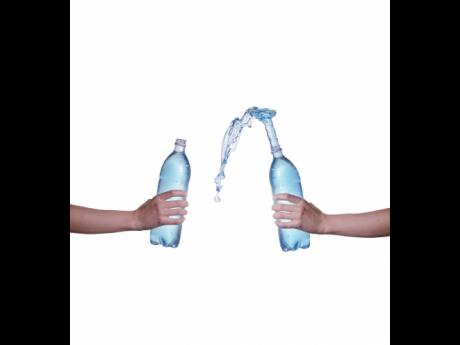Preparing for coronavirus
As the new coronavirus keeps turning up in more places across the globe, health experts say it’s wise to prepare for a wider spread. But people shouldn’t panic or hoard large amounts of supplies, they stress.
Jamaica yesterday confirmed its first case of the virus.
So what should you do?
Some commonsense steps that are useful for any emergency, such as severe weather, can help get you and your family ready in case you need to hunker down.
An outbreak “could last for a long time in your community,” the US Centers for Disease Control and Prevention warns in its preparation advice.
A good way to think about planning, says former CDC Director Dr Tom Frieden, is “if you had to be quarantined for 14 days at home,” how would you cope?
TALK AND PLAN
Start by talking with family members about how to take care of each other, discuss emergency preparations with neighbours, and investigate resources such as food and meal-delivery services in case you can’t go out for food, the CDC and others advise.
• Consider options for working from home, if possible, and what to do if schools or day care centres close.
• Get copies of any health records you may need.
• Pick a room that could be used to separate a sick person from the rest of the family.
FOOD AND WATER
How much food should you have on hand? The advice varies. CDC’s guidance for general emergency preparedness says at least a three-day supply. The US Department of Homeland Security recommends two weeks, and Harvard University experts suggest two weeks to 30 days.
“You may not be able to get to a store, or stores may be out of supplies, so it will be important for you to have extra supplies on hand,” the Harvard site says.
That means non-perishable and ready-to-eat foods. Consider special needs, such as allergies; medical conditions, such as diabetes; babies who might need ready-to-feed formula; and toddlers who might need shelf-stable milk.
Don’t forget about pets
It seems unlikely that water service would be disrupted, but CDC’s general guidance is to have at least three gallons for each person and pet, said Frieden, who now heads an organisation promoting global public health.
MEDICINES
Frieden advises having a three-month supply of important medications, such as those for diabetes and high blood pressure. There is a risk that the supply chain for some medications could be interrupted, causing shortages, he explained.
Don’t forget other health supplies, such as over-the-counter pain relievers and stomach remedies.
CLEANING SUPPLIES
Clean things that are touched a lot – countertops, light switches, doorknobs, cabinet handles – daily, using ordinary detergent and water, the CDC advises.
AP

